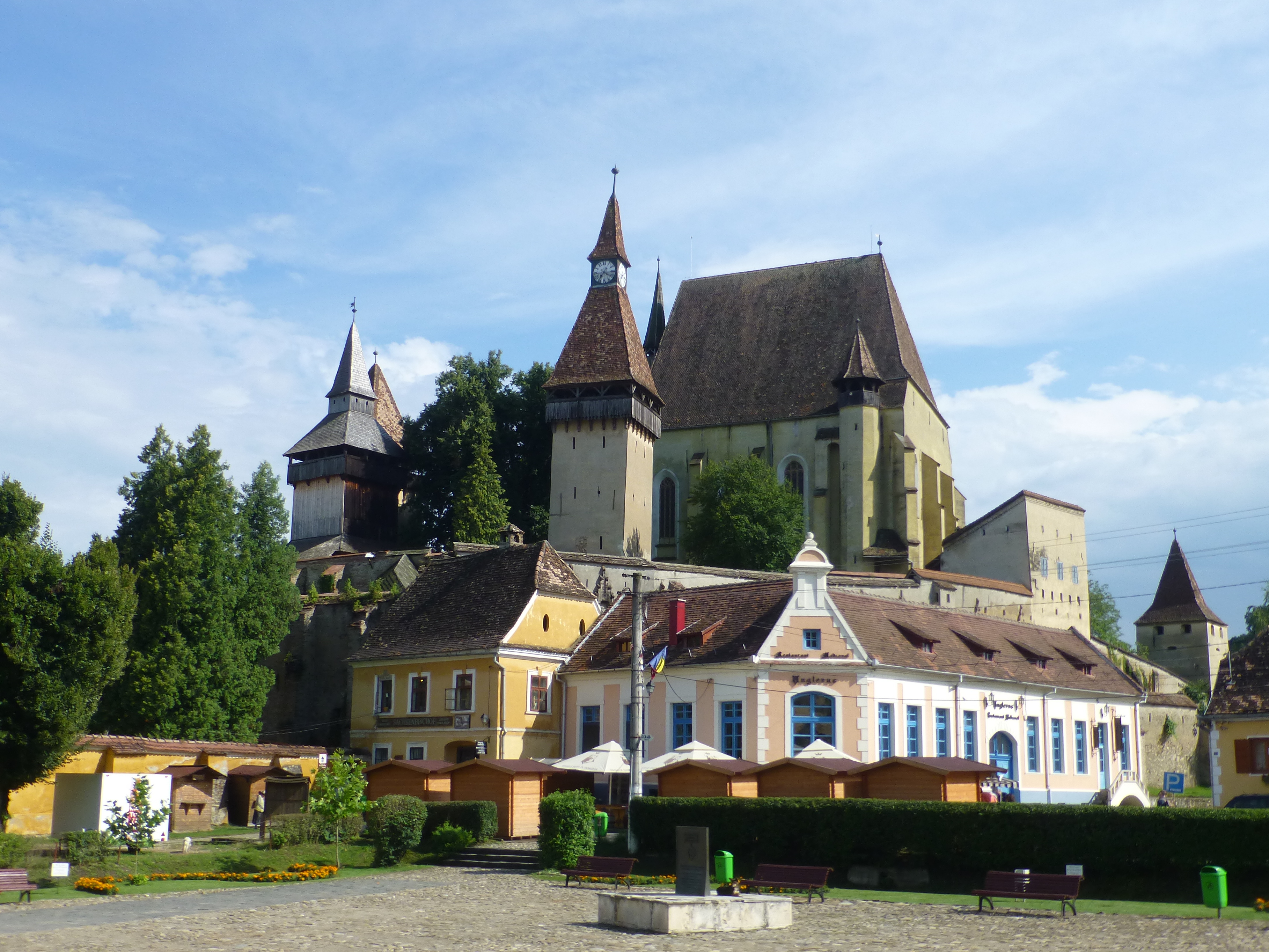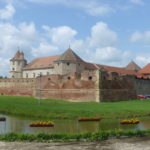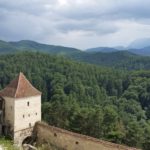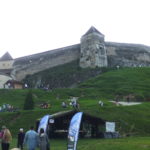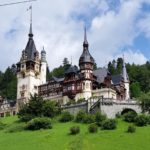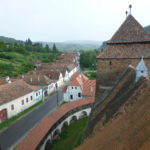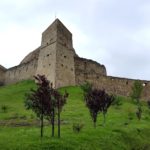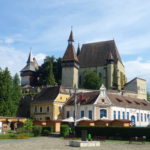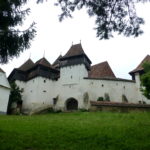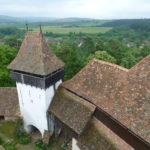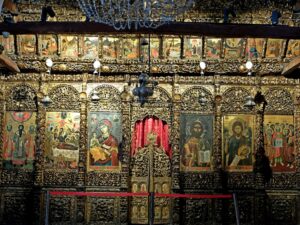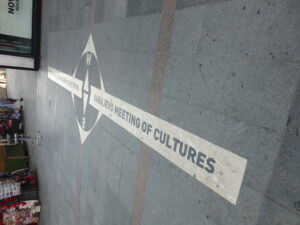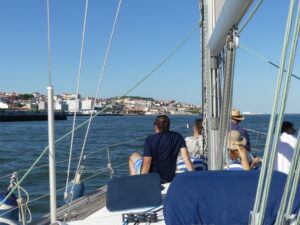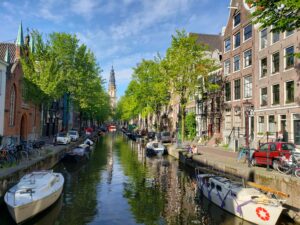As if painted churches and wooden churches, low costs, colorful old cities, and delightful terrain weren’t enough to entice you to Romania, you can also visit quite a number of ancient castles and fortified churches in the central part, Transylvania. Built mainly by the Saxon Germans (or Teutonic knights), the Romanian castles were imposing structures that evolved over centuries to confront Ottoman or Tatar incursions. Only enduring fantasies saw vampires in them. In smaller villages, fortified churches – plain Protestant churches tightly encircled by high walls and towers – served the Saxons as spiritual havens in peacetime and physical refuges when attacked. In larger cities, massive perimeter walls and numerous watchtowers – each sponsored by trade guilds -served the same protective purpose.
The restored castle of Fagaras, one of the few with a moat.
The thick Transylvanian woods suggest why people in the centuries before the 20th c. thought strange creatures lived there and perhaps occupied those ruined castles.
Rasnov Castle, a mix of ruins and restorations, is a popular castle to visit mainly because a Dino Park entertainment complex lies below it. Dinosaurs, medieval castles…connected, right?
Odd man out: Peles Castle is a relatively modern creation, built not for defense but for show. It was the late 19th c. summer home of King Carol I, the last king of Romania. The inside is as elaborately crafted as the exterior, and quite entertaining to visit.
The old Saxon village of Valea Viilor as seen from atop a tower of its fortified church. The town is only a bit larger now than it was 400 years ago.
Rupea fort, mostly remnants and restored buildings, but with some interesting history to learn as we spiralled to the peak past its three tiers of walls, each from a different century.
Fortified church of tiny Biertan village, one of the best preserved and elaborate of those in Romania
The imposing fortified church at the little village of Viscri. A university student from Germany greeted us and shared his Saxon family’s history in this area. By now most of Viscri’s descendants of the original settlers have returned to Germany.
Viscri countryside from atop the huge central tower of its fortified church.
(Also, for more pictures from Romania, CLICK HERE to view the slideshow at the end of the itinerary page.)


